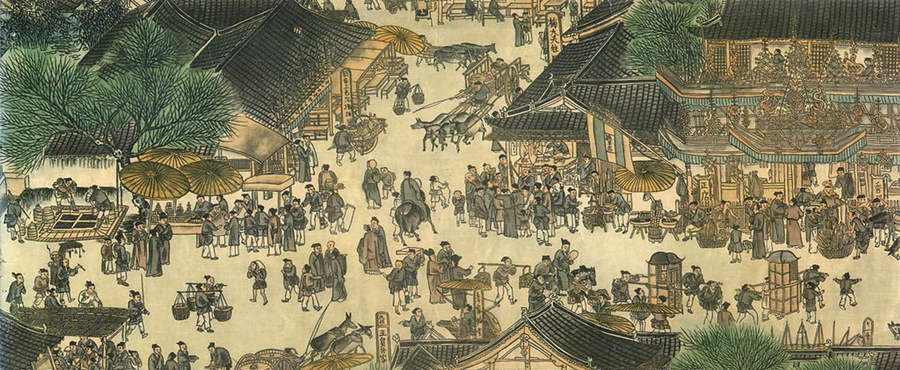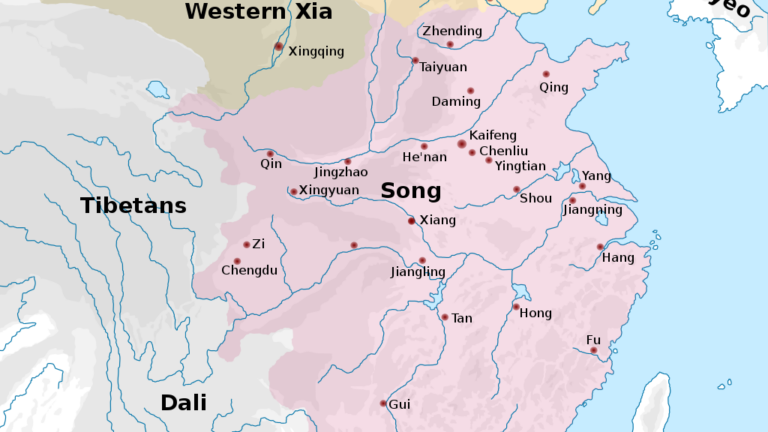The Song dynasty ([sʊ̂ŋ]; Chinese: 宋朝; pinyin: Sòng cháo; 960–1279) was an imperial dynasty of China that began in 960 and lasted until 1279. The dynasty was founded by Emperor Taizu of Song following his usurpation of the throne of the Later Zhou, ending the Five Dynasties and Ten Kingdoms period. The Song often came into conflict with the contemporaneous Liao, Western Xia and Jin dynasties in northern China. After decades of armed resistance defending southern China, it was eventually conquered by the Mongol-led Yuan dynasty.

The dynasty is divided into two periods: Northern Song and Southern Song. During the Northern Song (Chinese: 北宋; 960–1127), the capital was in the northern city of Bianjing (now Kaifeng) and the dynasty controlled most of what is now Eastern China. The Southern Song (Chinese: 南宋; 1127–1279) refers to the period after the Song lost control of its northern half to the Jurchen-led Jin dynasty in the Jin–Song Wars. At that time, the Song court retreated south of the Yangtze and established its capital at Lin’an (now Hangzhou). Although the Song dynasty had lost control of the traditional Chinese heartlands around the Yellow River, the Southern Song Empire contained a large population and productive agricultural land, sustaining a robust economy. In 1234, the Jin dynasty was conquered by the Mongols, who took control of northern China, maintaining uneasy relations with the Southern Song. Möngke Khan, the fourth Great Khan of the Mongol Empire, died in 1259 while besieging the mountain castle Diaoyucheng, Chongqing. His younger brother Kublai Khan was proclaimed the new Great Khan and in 1271 proclaimed himself Emperor of China, establishing the Yuan dynasty.After two decades of sporadic warfare, Kublai Khan’s armies conquered the Song dynasty in 1279 after defeating the Southern Song in the Battle of Yamen, and reunited China under the Yuan dynasty.


